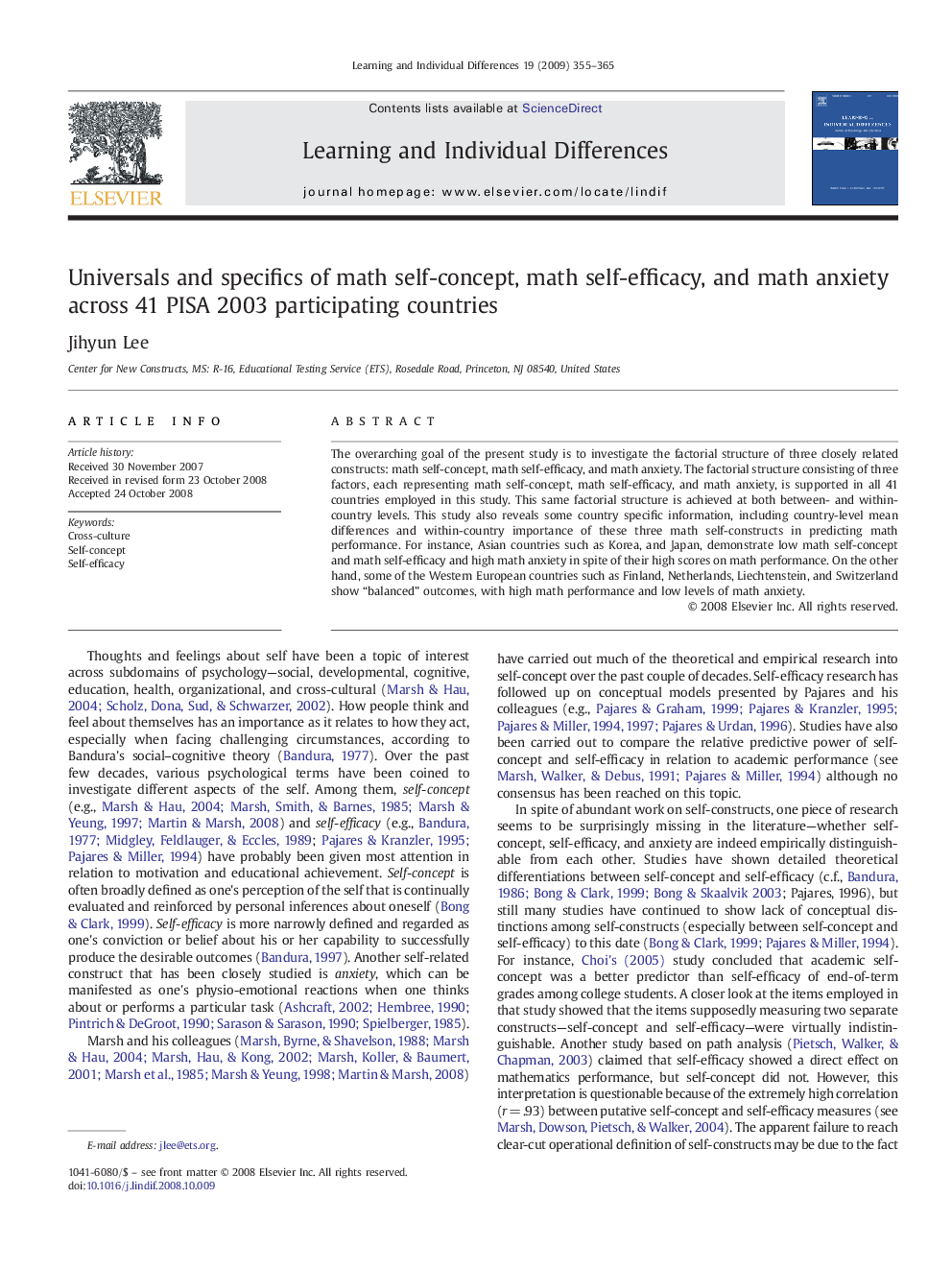| کد مقاله | کد نشریه | سال انتشار | مقاله انگلیسی | نسخه تمام متن |
|---|---|---|---|---|
| 365436 | 621136 | 2009 | 11 صفحه PDF | دانلود رایگان |

The overarching goal of the present study is to investigate the factorial structure of three closely related constructs: math self-concept, math self-efficacy, and math anxiety. The factorial structure consisting of three factors, each representing math self-concept, math self-efficacy, and math anxiety, is supported in all 41 countries employed in this study. This same factorial structure is achieved at both between- and within-country levels. This study also reveals some country specific information, including country-level mean differences and within-country importance of these three math self-constructs in predicting math performance. For instance, Asian countries such as Korea, and Japan, demonstrate low math self-concept and math self-efficacy and high math anxiety in spite of their high scores on math performance. On the other hand, some of the Western European countries such as Finland, Netherlands, Liechtenstein, and Switzerland show “balanced” outcomes, with high math performance and low levels of math anxiety.
Journal: Learning and Individual Differences - Volume 19, Issue 3, September 2009, Pages 355–365